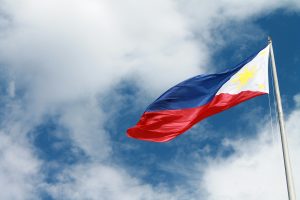The Philippines’ newly appointed Foreign Secretary Enrique Manalo has pledged to uphold the landmark arbitral ruling that found most of China’s claims in the South China Sea invalid, describing its findings as “conclusive” and “indisputable.”
The July 2016 ruling from an arbitral tribunal based at the Permanent Court of Arbitration in the Hague rejected most of the Chinese government’s claims to the crucial waterway, including its expansive “nine-dash line” maritime claim.
In a statement today marking the sixth anniversary of the award, and the 40th anniversary of the United Nations Convention on the Law of the Sea (UNCLOS), on which the ruling was based, Manalo said that it was “no longer within the reach of denial and rebuttal.”
“The Award is final,” Manolo said in his statement. “We firmly reject attempts to undermine it; nay, even erase it from law, history, and our collective memories. At the same time, we welcome the support of a growing list of countries for the Award.”
He described the arbitral ruling and UNCLOS as “the twin anchors of the Philippines’ policy and actions on the West Philippine Sea,” as Manila refers to its sections of the South China Sea.
The Philippines brought the case against Beijing in 2013, not long after a prolonged standoff over the Scarborough Shoal, which finished with China in control of the feature. The tribunal ruled that the claim of historic rights to resources within the sea areas falling within the “nine-dash line” had no basis in law. It also upheld the Philippines’ sovereign rights and jurisdiction within 200-nautical-mile exclusive economic zone, a large swathe of which is lopped off by China’s “nine-dash line.”
But the award was immediately set aside by President Rodrigo Duterte, who had taken office just days earlier. Duterte said that he would prefer to talk directly with China about the South China Sea issues. He also hoped to gain access to Chinese infrastructure funding under the Belt and Road Initiative (BRI), in order to beef up his domestic economic agenda.
The statement from Manalo, a career diplomat who was appointed foreign secretary by President Ferdinand Marcos Jr. a few days after his own inauguration on June 30, seems to suggest that the new administration will break with Duterte’s accommodating position on the South China Sea disputes.
But the statement follows several months of mixed messaging from the Philippines’ new leader. During election campaigning in January, Marcos said that he would follow Duterte in setting aside the arbitral award and negotiate directly with Beijing over the disputes. Then, in May, he pledged to uphold the ruling and said that as president he would not allow “a single millimeter of our maritime coastal rights to be trampled upon.”
The six-year term of his predecessor Rodrigo Duterte was marked by a similarly volatile swings from indifference toward the ruling, which Duterte once likened to a piece of “paper,” and pledges to uphold it. All the while, the Department of Foreign Affairs was diligent in calling out the repeated Chinese incursions into the Philippines’ EEZ, which earlier this year prompted outgoing Foreign Secretary Teodoro Locsin to tell China to “get the f*** out” of Philippine waters.
This gap between the bureaucracy and a vacillating executive leadership makes it hard to draw binding conclusions from Manalo’s statement. But it adds to the existing evidence that the accommodating position of the Duterte administration will become a thing of the past.













